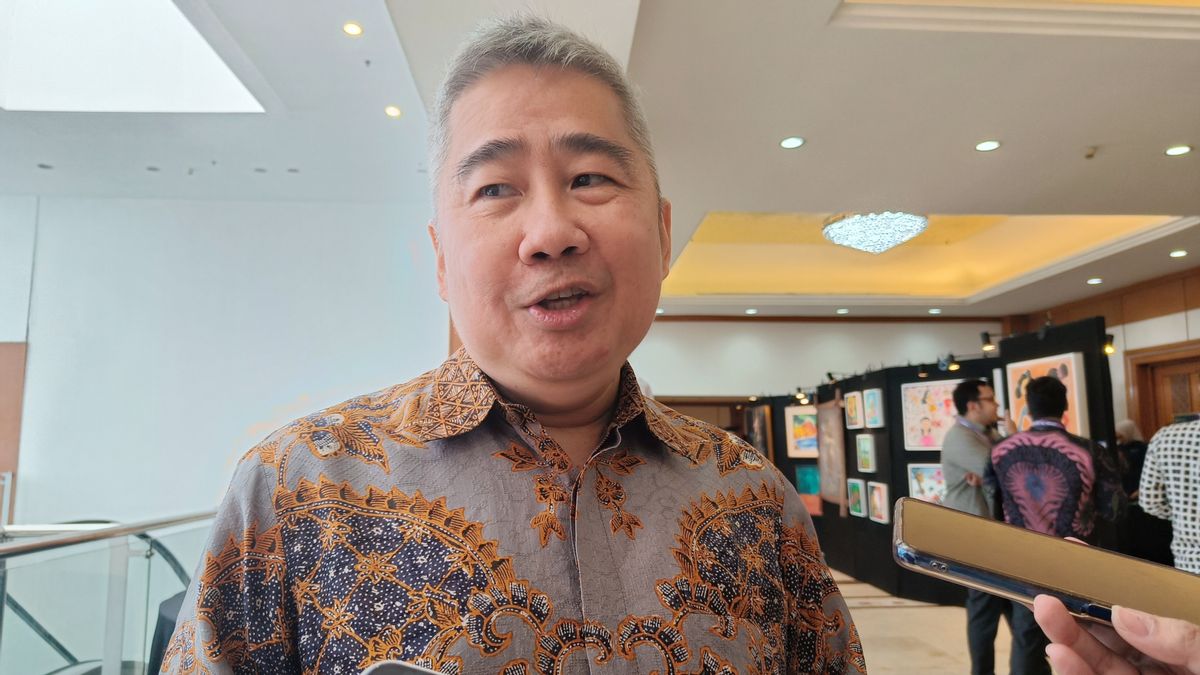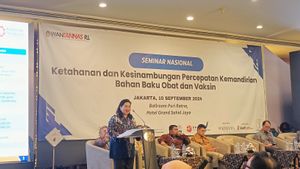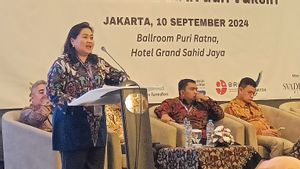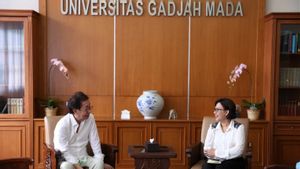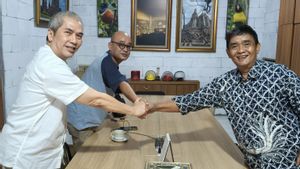JAKARTA - The Association of Biofarmations and Drug Baku Materials (AB3O) explained, a number of challenges in building the independence of the domestic drug raw material (BBO) industry. Among other things, related to the competitiveness of imported products and the economic scale that is still limited.
Chairman of the Association of Biopharmaceuticals and Drug Baku Materials (AB3O) FX Sudirman said, BBO is a newly developed industry and does not yet have the ability to compete with more mature industries, especially global players.
"The biggest challenge is competitiveness. Because in new Indonesia, the economic scale is limited. If the raw materials are drugs, yes, it will probably be more expensive," said Sudirman when met on the National Seminar agenda entitled 'Resilience and Continuity in Accelerating Independence of Drug and Vaccine Raw Materials at Grand Sahid Hotel, Jakarta, Tuesday, September 10.
This is in line with a report from the Ministry of Health (Kemenkes) which states that the price of domestic production BBO is higher than imports. As a result, product prices become more expensive, especially products that contain more than 50 percent of raw material components.
Based on AB3O records, out of a total of 1,105 BBOs, the new national industry is capable of producing 62 medicinal raw materials. To be able to improve the manufacturer's ability, the government needs to step in from the development side to the expansion of the economic scale.
According to Sudirman, the move that can be encouraged is to optimize the use of local raw materials for the national drug industry. He gave an example of the condition of India and China with great domestic potential, thus encouraging large-scale production as well as expansion into the global market.
"Maybe the government needs government support so that the domestic drug industry or pharmaceutical industry wants to use it. So that they live," he said.
One example is the Government of India which provides subsidies, so that the selling price of drugs is more affordable. In the short term, the development of the BBO industry is quite expensive, but this is needed for the long term for the independence of national pharmaceuticals.
On the other hand, Sudirman appreciated the government for providing several incentives such as programs from the Ministry of Health, namely change source or replacement of imported raw materials paid by the government.
Not only that, another stimulus provided by the government is clinical trial facilities. Meanwhile, from the fiscal side, tax holidays, tax deductions and others are given.
"Then there are many other incentives. But, maybe because there are many conditions, (so) they are still complicated. Maybe not many can take advantage of it," he said.
Meanwhile, the Director of Chemical Downstream and Pharmaceutical Industry of the Ministry of Industry (Kemenperin) Emmy Suryandari said the number of imports for national medicinal raw materials (BBO) has reached 90 percent to date.
Emmy said the import dependence rate was in line with the increase in national BBO producers in the country.
SEE ALSO:
"Regarding the current national profile of the BBO industry, thank God there are 20 industries. I said thank God because the challenges are quite large in the middle, at this time our import rate of BBO itself is still around 90 percent from outside," he explained.
He hopes that the number of national BBO producers can continue to grow. Thus, the import rate can be reduced in the future.
"We hope that 20 (BBO producers) can increase in numbers and also increase in terms of BBOs that can be produced and I think with our enthusiasm all of this time, it is very possible that the pharmaceutical industry in Indonesia can grow to become king in its own country," he said.
The English, Chinese, Japanese, Arabic, and French versions are automatically generated by the AI. So there may still be inaccuracies in translating, please always see Indonesian as our main language. (system supported by DigitalSiber.id)
